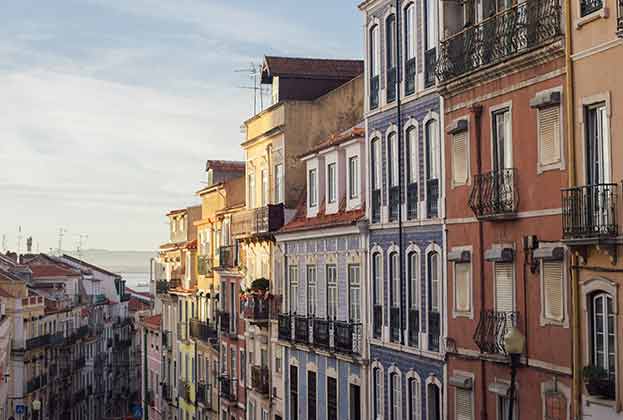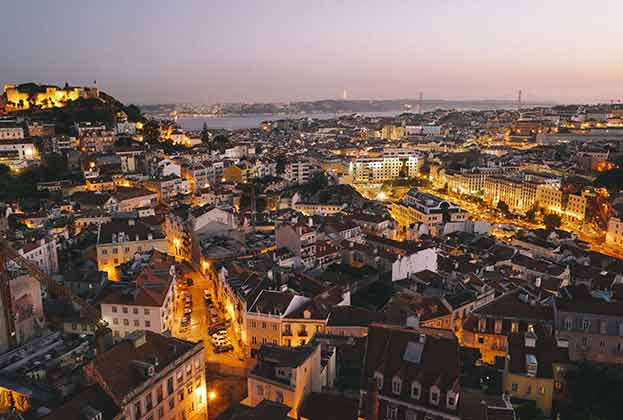Solid economic performance, growing demand and market reform has driven the market in Lisbon
Market performance
Lisbon’s residential market experienced a period of exceptional growth between 2014 and 2019. A strong economy, rising tourist industry and policies to attract foreign investors spurred new development activity and supported price rises.
Residential construction in Lisbon surged between 2014 and 2016 as a result, largely focused around renovation projects in the city’s historic centre. With fewer buildings now available for renovation, construction activity has since slowed, and has slowed further as a result of the pandemic, but continues to outpace the national market.
In the year to May 2020, new build construction in Lisbon was 8% above the same period the year prior, compared to 6% for Portugal. New build activity could present an opportunity for developers going forward. With fewer renovation opportunities there is also a growing need for new housing targeted at the middle class.
Covid-19 and the prime residential markets
Like many prime residential markets around the world, Lisbon has felt the impact of Covid-19, particularly as international interest remains a significant driver of the prime market. In the first half of 2020, prime prices in Lisbon fell by 4.3%.
This is different to Lisbon’s experience during the global financial crisis (GFC), when house prices experienced a large and sustained fall, (down 21% from peak to trough, according to INE). Following the GFC Portugal implemented structural economic reforms, residential markets have been opened up, and a Golden Visa scheme introduced, attracting significant inward investment. This puts the residential market on a much stronger footing and Lisbon is forecast to outperform many of its peers as activity picks up once again (see Residential Market prospects).
Lisbon’s appeal
Lisbon is Portugal’s business and economic hub, accounting for over a third of national GDP, according to Oxford Economics. The city has a fast-growing technology and start-up scene, with over $105m raised in venture capital for 2019–2020, a substantial figure, considering $134m was raised in total in the ten years prior. A number of international companies have a presence in Lisbon and the city also hosts the annual Web Summit, the world’s largest technology event (albeit to be held online for 2020).
The city is also an appealing place to live. A Western European capital rich with culture, Lisbon also offers residents a low cost of living and high quality of life. A compact-sized capital with short commuting distances and a sunny climate (the average year-round temperature is 17°C) makes it attractive to those looking to locate for study, work and living alike. This is particularly important as people reassess their work/life balance in the wake of the pandemic.
Read the other articles within Spotlight: Lisbon Residential Market 2020 below
.jpg)

